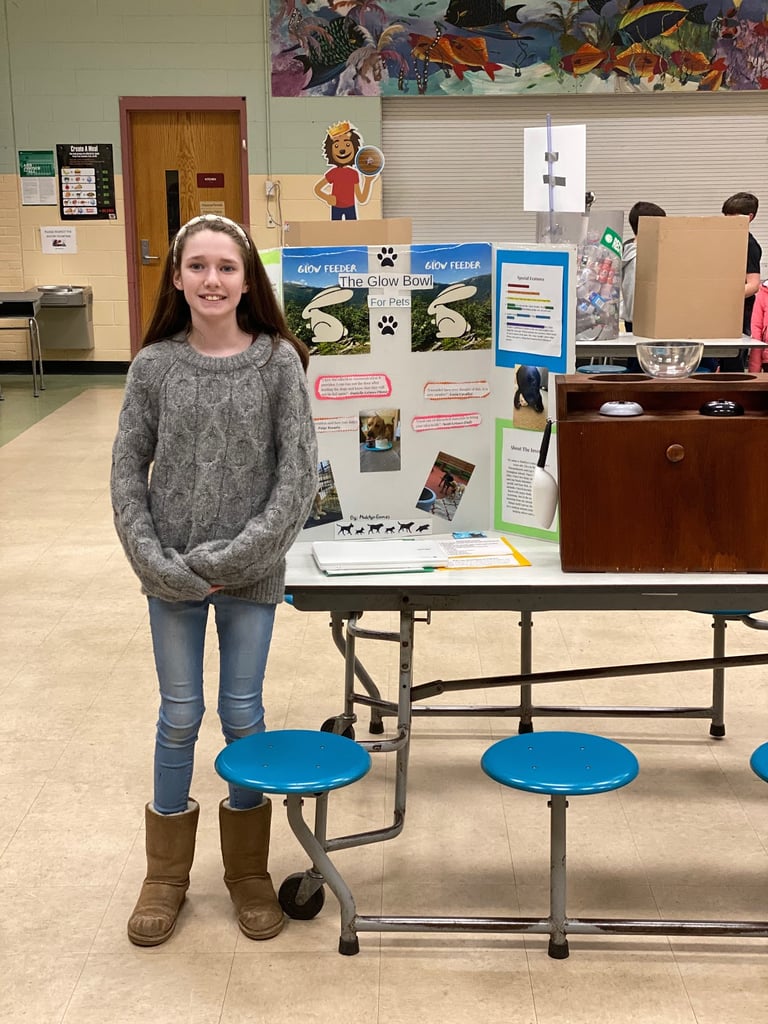WEST NEWBURY — Superintendent Justin Bartholomew is pleased to share that five elementary school students in the district will represent the Northern New England region in the remotely held Henry Ford Annual Invention Convention U.S. Nationals this June.
Sixth grade students at the Helen R. Donaghue School in Merrimac and Dr. John C. Page Elementary School in West Newbury participated in the Young Inventors’ Program this school year as part of the district’s STEM curriculum. The initiative was led by Susan Simmons, a Science, Technology, Engineering, Arts and Mathematics (STEAM) teacher at the Page, Donaghue and Dr. Frederick N. Sweetsir Elementary Schools and Hilary Seager, a sixth grade teacher at the Page Elementary School. Seager also offered an after school inventors program this school year at the Page Elementary School for students in grade three through five.
“As a district we recognize the importance of the STEAM philosophy and embrace opportunities where students can connect their learning in the areas of Science, Technology, Engineering, and Math with Arts practices, elements, and design principles,” Seager said. “The STEAM curriculum challenges students to identify and solve real world problems through the engineering and design process.”
The students to take part in the national competition include sixth grader Jackson Miller, sixth grader Owen McDonald, fourth graderCamden Miller, and fifth grader Charlie Botto, all of whom are students at the Dr. John C. Page School in West Newbury, and Madelyn Grimes, a sixth grade student at the Helen R. Donaghue School in Merrimac.
“I am so excited for our young inventors,” Simmons said. “They worked hard and persevered through many iterations of their invention designs to come up with successful and marketable products that solve real world problems.”
The students will give presentations on inventions they developed at the national competition, which will be held online from June 3-17 and is being hosted by Invention Convention Worldwide and the Henry Ford Museum in Dearborn, Michigan.
“Frankly, what these students have managed to invent and accomplish is incredible, and we’re thrilled to see them have this opportunity to represent northern New England in this competition,” Superintendent Bartholomew said. “They have each displayed ingenuity, creativity and confidence as they’ve shared their inventions, and we wish them luck this June.”
Students first presented their inventions at school-based Invention Fairs at the Donaghue and Page Elementary Schools in early March. Those who were awarded first place in the fairs were nominated to represent the district in the 2020 Northern New England Region Invention Convention, which was held virtually this year due to the COVID-19 pandemic. Each inventor submitted a video for consideration describing their invention process and demonstrating how their invention works.
At a virtual awards ceremony of the Regional Invention Convention on May 8, Miller, McDonald, Miller, Botto and Grimes were honored with awards for their inventions, and are among those selected to represent the New England Region in the Invention Convention U.S. Nationals.
Grimes received the Animal Welfare award for her invention, a Glow Feeder. She developed a pet-feeding center with bowls that light up when your pet(s) finish eating, which allows everyone in a household to know that the pet(s) have been fed.
McDonald and Jackson Miller received both the Entrepreneurship and the Health & Wellness Awards for their Thermosleeve, a heated physical therapy sleeve that promotes blood flow and helps reduce pain.
Botto and Camden Miller tied with another invention submission for the Sports/Games/Toys Music Award and came in second place in the Best in Grade Category. Their invention, LEDS Play, is a recorder with LED lights programmed to light up the fingers needed to play each note in a song.
The Northern New England regional Young Inventors’ program is sponsored by the Academy of Applied Science, which promotes hands-on learning, research and testing as students explore STEM principles and develop 21st century skills in decision making, design thinking and communication.
###


